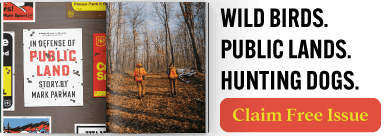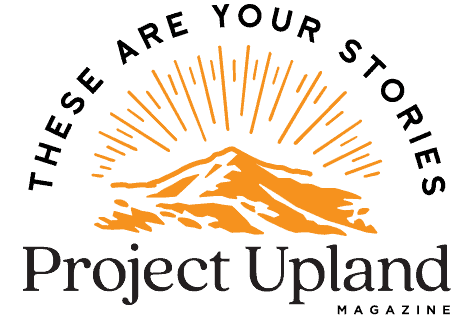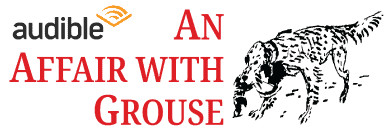Home » Hunting Dogs » The Great Pause – World Crisis, History, and the Hunting Dog World
The Great Pause – World Crisis, History, and the Hunting Dog World
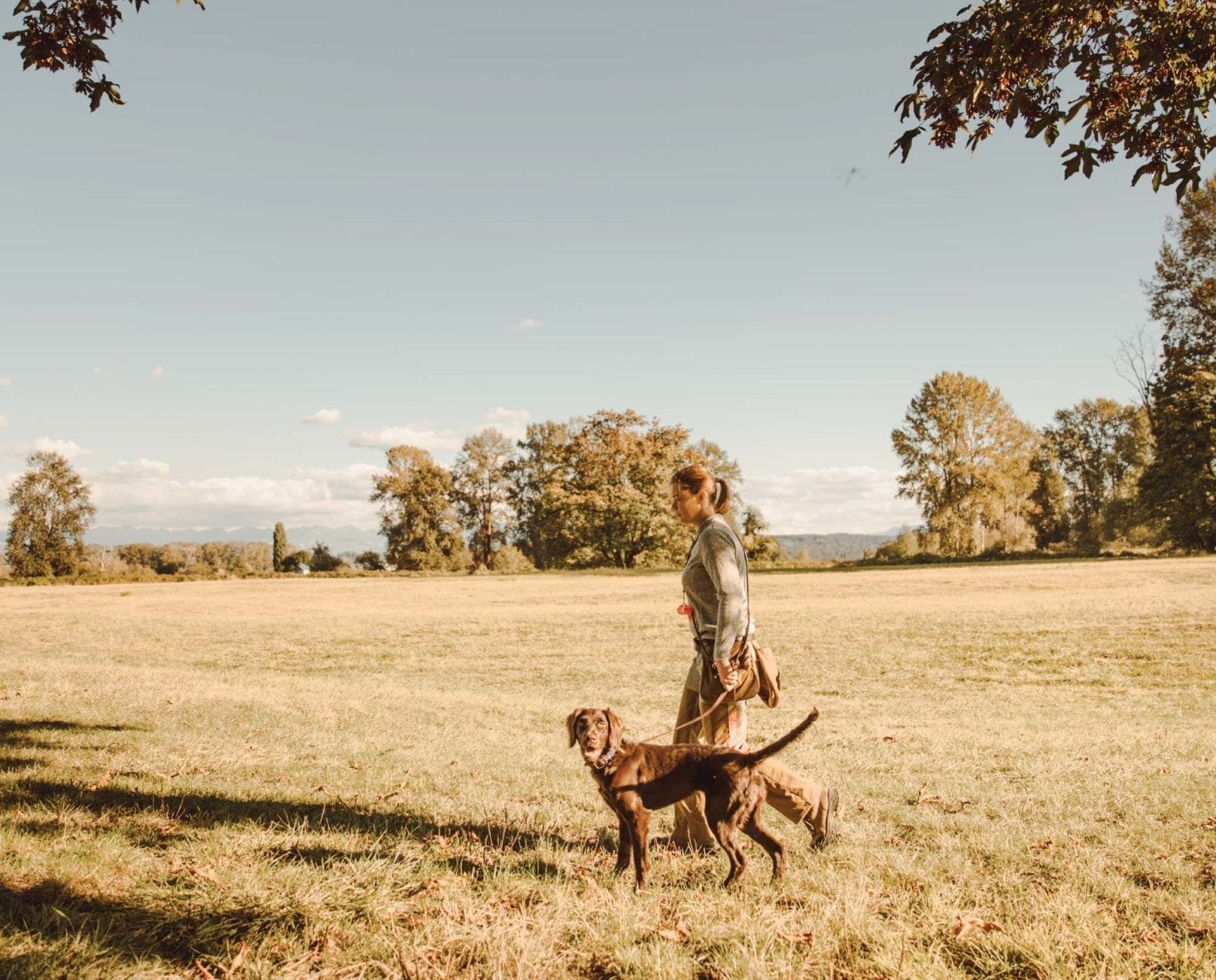
From their home base in Winnipeg, Craig Koshyk and Lisa…
Taking a look at how COVID-19 affected the bird dog world through historical context and organizational response
As we all do our part to limit the spread of COVID-19 many of us are wondering about the impact of social distancing and stay at home orders on our gun dogs and the outdoor activities we enjoy sharing with them. In this article I’d like to look at what we can learn from gun dog owners in the past when they too were faced with massive disruptions to their lives.
Lessons from London: Clear, reliable communication is key
If you were in London, England today, you’d see a major Western city in the grip of a dangerous virus. While streets are eerily quiet, hospitals are buzzing with intense activity as hundreds of new patients are admitted every day, including England’s Prime Minister, Boris Johnson, who just recently recovered from COVID-19.
And if you were in London in 1940, you’d see a major Western city preparing for war. While streets were filled with soldiers and military vehicles hospitals were bracing for the casualties of bombing raids. But you would also see thousands of pet owners queuing up outside animal shelters and veterinary clinics. But the cats, dogs, birds and rabbits they held in their arms weren’t sick. They were there to be euthanized.
The tragic story of Britain’s pet massacre is largely unknown but contains a valuable lesson for all of us living through today’s scourge of COVID-19: clear, honest communication from folks in charge is key if you want to avoid panic.
In 1939, the British government failed to understand just how easily panic could overcome an anxious public when they issued an advisory pamphlet entitled “Advice to Animal Owners.” Among other suggestions, the pamphlet encouraged pet owners to “. . . send or take your household animals into the country in advance of an emergency. But if you cannot place them in the care of neighbours, it really is kindest to have them destroyed.” The pamphlet even included an ad for a captive bolt pistol specially designed to kill small animals. It was promoted as “. . . the speediest, most efficient and reliable means of destroying any animal, including horses, cats, and all sizes of dogs.”
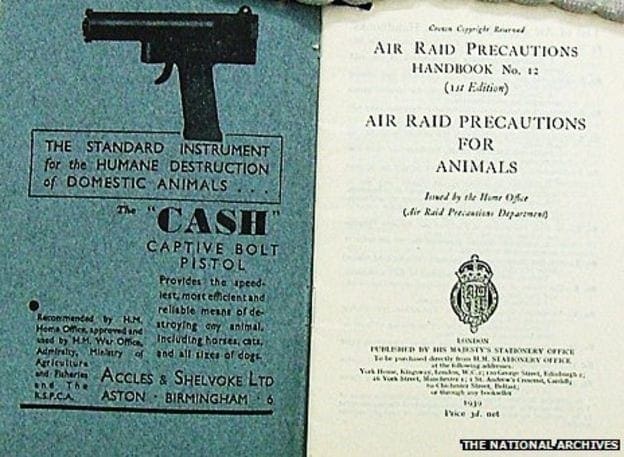
The result was panic. Britons rushed to have their pets euthanized, killing over 750,000 of them in just over a week. Isaac Sharpe, owner of one the world’s largest kennels of English pointers is said to have killed over 400 dogs in a single day!
Alarmed by the public’s reaction the government tried to put the genie back in the bottle. But it was too late. The tone, content and timing of their ‘advice to animal owners’ was atrocious. And three quarters of a million pets paid the price.
COVID-19 and the effects on dogs
Today, we are bombarded with information 24/7, some of it, unfortunately, may be less than reliable. But there are trustworthy organizations providing valuable advice to pet owners and, so far, it looks like most people are listening to them and have resisted the urge to panic.
According to the CDC, COVID-19 doesn’t seem to make dogs sick and there is no evidence to suggest that they can infect other animals or people. In a recent laboratory test three young dogs were exposed to the virus via the nasal passage and kenneled with other dogs that were not given the virus. After a week, the virus was undetectable in any of the dogs even though two had generated an immune response. The two dogs that were not given the virus via the nasal passage did not acquire it from their kennel mates. Chickens, pigs and ducks are also reported to be at low risk for acquiring or transmitting the virus. However cats and ferrets seem to be at higher risk for contracting the illness and, according to some reports, they can actually transmit it to others of their kind. Fortunately it doesn’t look like they can pass it on to humans.
In any case, even though our dogs don’t seem to pose any risk to us when it comes to COVID-19, it is always a good idea to practice good pet hygiene. And that means always cleaning up after them and washing our hands after handling them, their food, their waste, or their supplies.
And if you actually come down with COVID-19 yourself (either suspected or confirmed), according to the CDC, you don’t pose much of a risk to your pet, but out of an abundance of caution they advise you to restrict contact with your dogs, just like you would with other people.
- When possible, have another
member of your household care for your animals while you are sick. - Avoid contact with your pet
including, petting, snuggling, being kissed or licked, and sharing food. - If you must care for your pet
or be around animals while you are sick, wash your hands before and after you
interact with them.
Please note: things are still developing. The CDC will continue to monitor the situation and provide updates as information becomes available.
Lessons from France: Keep calm and carry on by making adjustments
During the first world war in France, as many of the ferocious battles were fought on French soil, hunting seasons were closed throughout the country in order to save gunpowder for the military. However, some types of game were allowed to be taken in some areas by using other methods such as nets and crossbows. And some even had to adapt their methods to deal with the threat of the countryside being overrun — not by the enemy, but by boars.
“. . . we will have to defend ourselves from the incursions of wild boars, just as we did in 1870 (during a previous war between France and Germany), when enormous packs of wild boar driven from the Vosges Mountains and our forests in the northeast spread out across France. In this year of 1914 — one that will go down in history — we are already hearing of large herds of boar that have driven out of the Belgian Ardennes and the upper Vosges mountains and are pouring into the Oise and Anse regions and all the way to Rouen. Without resorting to the hunting styles of Gridel and Cerfon who killed boars with spears, we could certainly bag a good number of the invaders by means of snares and traps without having to actually open up the hunting season. So let’s leave things as they are, but if required, local authorities should give the necessary permits.”
But even as hunting seasons were closed and gunpowder saved only for military purposes, field trials were still held in some areas of France as fighting raged across the entire front line. The sporting press from the period continued to publish accounts of the trials, providing stake by stake coverage of the latest events. It was thought that continuing to run trials, albeit on a reduced schedule, and publishing the results was good for soldiers’ morale, many of whom were avid field trialers, breeders and hunters.
So the lesson here is that no matter what the circumstances, we can adapt, and we can continue to share our love of field trials, hunt tests, dog training and hunting, even if it is not in the same ways to which we’ve grown accustomed. Personally, I have a brand new pup who I had hoped would run in a NAVHDA Natural Ability test this summer, but it looks like the test may not be held. Nevertheless, I will still do all the same things I do with all my pups when I prepare them for the test. We’ll run him in the fields, let him swim in the ponds, get him used to gunfire and let him be a pup this summer. If the test is on, great! If not, he’ll still be ready for the hunting season, and that’s the main thing.
Lessons from America: Hard times can change attitudes for the better
In a fascinating article entitled ‘Mallards and Messerschmitts: American Hunting Magazines and the Image of American Hunting During World War II,” history professor Thomas L. Altherr explained how the sporting press helped change American attitudes towards hunting:
“When the Japanese struck at Pearl Harbor in 1941 and the United States immediately entered the world war, American hunters and the hunting magazines such as Field and Stream, Outdoor Life, and Sports Afield, found an opportunity to re-gloss the somewhat tarnished image of American hunting. During the previous four decades. American hunters had encountered mounting criticism of their sport. In modernizing America, whereby 1920 over half the people resided in urban environs, hunting had seemed to become increasingly outdated, inefficient, and irrelevant.” — Altherr, Thomas L. “‘Mallards and Messerschmitts’: American Hunting Magazines and the Image of American Hunting During World War II.” Journal of Sport History 14, no. 2 (1987): 151–63. www.jstor.org/stable/43610148.
By the end of the war, according to Altherr, attitudes towards hunting had changed for the better. Thanks to the American sporting press, hunters came to be seen as hardy, valuable members of society and defenders of liberty. What followed was a massive increase in the numbers of hunters, hunting opportunities, field trials, dog shows and dog breeding.
Will this present crisis change folks’ attitudes towards hunting, the great outdoors and gundogs? I think it might. If cross-border travel is still restricted in the fall I can see hunters focusing more on what hunting opportunities are available to them closer to home. And if there are next to no opportunities, will this be incentive enough for them to get involved in creating them?
Maybe this is the year we all redouble our own efforts in our own neck of the woods. Maybe this is the year we volunteer for local programs aimed at improving habitat, or we agree to mentor a new hunter. Personally, I will be focusing on hunting closer to home this season and doing my best to help local lodges that depend on American clients coming up to hunt waterfowl in the Delta marsh. They may be hurting this fall, so I figure I should do my best to help alleviate some of the worst of it.
The effects of COVID-19 on hunting dog professionals
Even now, a shift to a more local focus seems to be occurring. More than ever before, neighbors are helping neighbors and everyone is paying closer attention to our elders. Essential workers from doctors and nurses on the front line of hospitals to the folks keeping our grocery stores stocked are finally getting the gratitude they deserve. As gun dog owners, we also need to take care of each other and show our gratitude and support to the people and businesses that keep our pets healthy, well-fed and well-trained.
So thank your local veterinarian, and pet shop owner. And see if there is something you can do to help out the professional trainers in your area. They will be facing some significant challenges this year and will need the support of our community.
With cancelled events, travel restrictions, cash-strapped clients and even reduced access to birds, trainers will need all the help they can get. So think about sending your dog for training, even if it won’t run in many (or any) trials. Trainers may have extra time on their hands and will be able to give your dog even more attention and training than in a normal year. You can also make a special effort this year to refer your friends to your favorite trainer, and we should all keep the pros in mind when we see a great deal on dog food or know where to get birds.
Perhaps the easiest and most helpful thing we can do is to just be there for them. So pick up the phone or send a message to a pro near you. Take the time to thank them for their work and offer to lend them an ear, a shoulder to lean on or a pair of hands to help out around the yard. Every little bit will help, and by supporting trainers now, we can make sure they’ll be ready and able to get back into full swing when this is all over.
And finally, take care of yourself, and your dogs. Your dogs know something’s up. You’re stressed, your friends and family are stressed, and yeah, your dog is stressed. So keep that in mind this summer when you head out to do some training with Fido. You will probably be doing a lot of training on your own since training groups and club events have ground to a halt. So slow down, stay calm and use the one-on-one time with your dog to forge an even deeper bond. Choose just a few things to work on, take it day by day, and above all, enjoy being in the great outdoors with him.
Get the latest in home training: Dog Training
Lessons from the field trial and hunt test community
No.1: Treasure what we have
Any current survey of the hunt test, field trial and dog show landscape will reveal countless events either cancelled or rescheduled. But it will also show just how organized, proactive, and above all, how committed they are. So the lesson here is be thankful, be supportive, and be prepared to help out.
Here is a summary of the official responses to COVID-19 coming from some of the biggest players.
NAVHDA and COVID-19 effects
In the wake of the pandemic, NAVHDA released the following announcement:
“In order to keep our members, handlers, judges, and spectators safe, the NAVHDA Executive Council has decided to cancel all NAVHDA sanctioned events through June 30, 2020, including all NAVHDA tests, Aims & Rules (previously known as “Handlers”) Clinics, and all other seminars sponsored or supported by NAVHDA International.
“This decision was not made lightly, and a wide range of considerations were taken into account. While we are cautiously optimistic that NAVHDA sanctioned events can resume in July, the NAVHDA Executive Council is meeting weekly to actively monitor and reassess our plans regarding the COVID-19 pandemic as it relates to events after June 30th. Additionally, even if public gatherings are currently permitted in your region, NAVHDA International strongly recommends that all Chapters cancel local events and training days, and under all circumstances, local Chapters are required to follow all Federal, State and local rules, guidelines, and mandates in regard to COVID-19.
“We are sorry to say that the 2020 Invitational has been postponed due to concerns over the COVID-19 epidemic. All dogs that were qualified for the 2020 Invitational are invited to participate in the 2021 Invitational, which will be hosted by the Hawkeye Chapter in Searsboro, Iowa. In the near future, more information will be provided directly to the owners of dogs qualified for the 2020 Invitational regarding 2021 Invitational dates and the handling of test entries/fees/reimbursements. Utility dogs that test in 2020 and receive a Prize I qualifying score will be eligible to participate in either the 2021 Invitational in Iowa or the 2022 Invitational, which will be hosted by the Zia Chapter in Albuquerque, New Mexico.”
The American Kennel Club (AKC) and COVID-19
The AKC has announced that local clubs are in the best position to determine if their event should be canceled or delayed given the specifics of their situation. These decisions should be made in consultation with the facility provider and information from state/local governments. Clubs that decide to cancel their event or delay their event should email the AKC at: EventPlans@akc.org. They are also posting regular updates regarding the status of local events and providing helpful articles on how pet owners can cope with the current situation. One article, in particular, struck home for me, the owner of a brand new pup currently trying to socialize him while practicing social distancing.
National Shoot to Retrieve Association and COVID-19
NSTRA issued an update on March 20, 2020. Here is a partial list of the changes/cancellations.
- The 2020 National Trial of Champions is cancelled. This trial will not be rescheduled.
- The 2020 National Amateur Championship is cancelled. This trial will not be rescheduled.
- If a region is unable to hold a regional elimination trial prior to the required 45 days prior to the date of the 2020 Dog of the Year (DOY) Trial, October 28, 2020, then a region may use the “high point” system as the basis for determining qualified dogs from a region eligible to compete in the DOY trial. All other criteria remain the same.
- If a region postpones or changes the date on which a regional elimination trial is held, then only those dogs meeting eligibility based on the original regional elimination trial date may compete in the re-scheduled trial. Further, eligibility for competing in the 2020 DOY trial shall be determined as voted by the membership in 2019.
- NSTRA will continue to sanction weekend trials and regional elimination trials.
- NSTRA National Officers are not directing regions as to how to proceed with weekend trials and regional eliminations. It is up to each trial chairman, local club, region president and/or region board of directors to make that determination in compliance with your specific state and/or federal guidelines.
- NSTRA Officers are available for counsel and discussion on a trial-by-trial basis.
The Amateur Field Trial Clubs of America and COVID-19
The Amateur Field Trial Clubs of America updated their website with advice for their members.You can read the full announcement here.
These are difficult and unusual times for all of us. With a geographically spread out membership the situation regarding COVID-19 is very fluid and very different for some of us. We trust that each area will manage their situations as they see best. In all cases we do recommend following any required local guidelines for social gatherings. We understand that many venues have been closed at this time and that many trials and club gatherings have been cancelled or postponed.
Local groups have been providing updates on their own websites and/or the AFTCA Facebook group found here.
The American Field and COVID-19
The American Field is also updating their website as they receive notices from local clubs about any changes or cancelations of events.
Lessons from the field trial and hunt test community
No 2: Adapt, adjust and conquer adversity
We’ve become used to a regular, annual rhythm of field trial, hunt tests, seminars, and meetings taking place at the appointed location on the appointed date. But it looks like 2020 has thrown us a massive curveball with huge numbers of events either being rescheduled or canceled altogether. But we are not the first to face this sort of adversity. Gundog owners in the past had to adapt to difficult situations too.
During the Second World War, for example, many trials were cancelled and some of the few that were still run had to be rescheduled or moved to a different location.For example, on August 3, 1942, the headline of “Melita will See Saskatchewan” the following notice appeared in the Winnipeg Evening Tribune:
Because of gasoline rationing, the annual Saskatchewan field dog trials, usually held on the Buffalo Lake course, 18 miles north of Moose Jaw, will be held this year at Melita, Manitoba, near the International border.
W.R. Ross . . . president of the field dog trials, revealed that that annual week-long event will be held commencing August 31 at the Manitoba point instead of near Moose Jaw because of the impossibility of the many American sportsmen, who take part in the trials, of getting enough gasoline.
So as far as field trials and hunt tests are concerned, the forecast for the next couple of months is surely the bleakest. And even when things slowly start to get back to normal, hopefully later in the summer, organizations will probably have to make some changes to the way they run their events, at least until a vaccine is found. And that may mean smaller galleries, or no galleries at all, no buffet lunches, no friendly hugs, no high fives or even shaking hands with the winners. And that will, pardon my French, suck. But it is our new reality, at least for now. And just like gun dog owners in the past, we will get through this together and when it’s all over, may we have an even greater appreciation for our dogs, our pursuit and each other.
From their home base in Winnipeg, Craig Koshyk and Lisa Trottier travel all over hunting everything from snipe, woodcock to grouse, geese and pheasants. In the 1990s they began a quest to research, photograph, and hunt over all of the pointing breeds from continental Europe and published Pointing Dogs, Volume One: The Continentals. The follow-up to the first volume, Pointing Dogs, Volume Two, the British and Irish Breeds, is slated for release in 2020.

